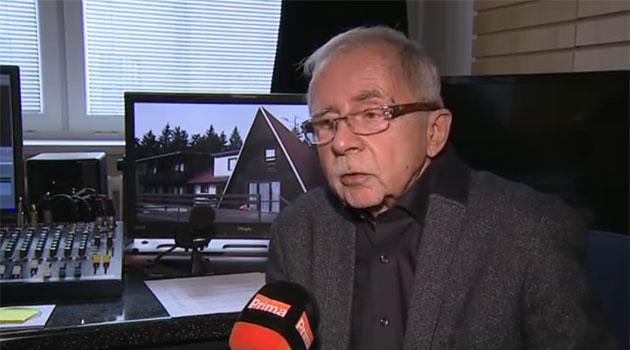Czech Government withdraws bill to strengthen Public Defender of Rights

Because MPs have been unable to reach agreement, the Czech Government has withdrawn the amendment it previously submitted to the Chamber of Deputies about the Public Defender of Rights that would have beefed up the powers of that authority. Instead, the Czech Human Rights and Legislation Minister, Jan Chvojka (Czech Social Democratic Party – ČSSD) will prepare a separate bill that will only empower the office to monitor the situation of people living with disabilities.
According to former Human Rights Minister Dienstbier, this means the Government has completely resigned itself to not fulfilling its program declaration in the human rights area. For his part, speaking to news server iDNES.cz on 27 January, Chvojka said “I consulted this with representatives of all the parliamentary clubs in the lower house, it has no chance of passing. A person in politics must be a realist.”
“Maybe one reason [for the disagreement] has to do with the person who is serving in that office today. It is true that in this case many MPS have connected these proposals with the person of Ms Šabatová and I believe the basic problem lies there,” Chvojka said.
The Government is backing away from its plan to expand the powers of the Public Defender of Rights to include the option of granting it standing to file anti-discrimination lawsuits and motions to the Constitutional Court to overturn laws in whole or in part. MPs from the governing ANO, ČSSD and Christian Democrat (KDU-ČSL) parties have spoken in the Chamber of Deputies against expanding the powers.
A bill by Czech MP Radka Maxová (ANO) has been proposed to the lower house that would give Parliament the right to recall the Public Defender of Rights in certain cases. Czech Prime Minister Sobotka has said that if one of any number of such bills were to be adopted, the position of the authority could be weakened.
Dienstbier: Government has resigned itself to not fulfilling its human rights promises
“The Government of the Czech Republic has resigned itself to not fulfilling its program declaration in the area of human rights by deciding to withdraw a bill from Parliament that would have, among other things, beefed up protections against discrimination, i.e., protections for people who frequently would be unable to defend themselves against humiliating behavior without the aid of others. I hope the Government will at least submit a monitoring mechanism focused on the rights of persons living with disabilities in time to be discussed,” Dienstbier responded on Wednesday, 25 January 2017 to the news that the bill he had drafted had now been withdrawn.
The bill sparked disputes among MPs from the beginning. That was demonstrated at the June session in which the lower chamber, through a partial vote, did not agree to give the Public Defender of Rights the power to bring motions before the Constitutional Court, but did preserve the option of the office filing anti-discrimination lawsuits in the bill.
Because the bill in that form apparently did not find enough votes to pass, mainly because of the stand taken against it by ANO movement members, it was sent for a repeated second reading. At the time Dienstbier insisted the governing coalition stick to the cabinet’s original plan.
The Government’s program presumes the cabinet “will strengthen legal opportunities for persons defending themselves against discrimination and will strengthen the power of the Public Defender of Rights to propose abolition of unconstitutional laws.” The subsequent sessions of the Constitutional Law Committee of the lower house, however, just confirmed that the fate of the bill was significantly uncertain.
MPs do agree that the Public Defender’s activities can be expanded with regard to upholding the rights of people living with disabilities. The Legislation and Petition Committee of the lower house recommended the addition to the Government’s original bill as an amendment.
Only the President, or a group of 41 MPs, or a group of 17 senators, or under certain conditions the Government, a Regional Authority, or the person concerned can file a complaint with the Constitutional Court. Lawsuits about discrimination can currently only be filed by victims who believe they have experienced such treatment.
